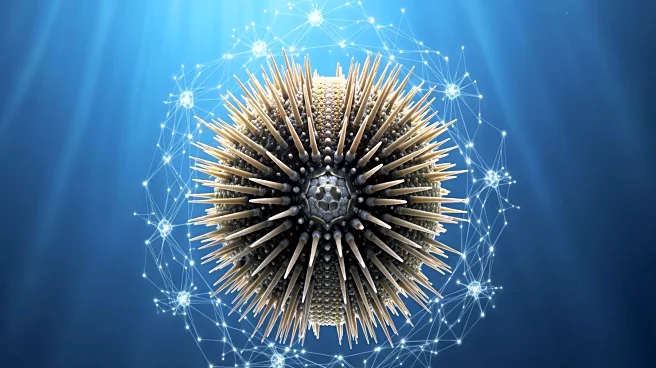What's Happening?
Recent research has unveiled that sea urchins possess a complex nervous system, contrary to previous beliefs that they had a primitive nerve net. An international team of researchers discovered that the entire body of a sea urchin functions as a brain,
with neurons distributed throughout its anatomy. This 'all-body brain' allows sea urchins to perform advanced functions such as learning and memory. The study also found that sea urchins are covered in light-sensitive cells, enabling them to detect and process light stimuli despite lacking eyes.
Why It's Important?
The discovery of the sea urchin's complex nervous system challenges existing assumptions about echinoderms and their cognitive capabilities. This research could lead to a reevaluation of how scientists understand the evolution of nervous systems in marine organisms. The findings may have implications for studying other species with decentralized nervous systems, potentially influencing marine biology and neuroscience research. Understanding the sea urchin's unique biology could also inspire biomimetic designs in technology and robotics.
Beyond the Headlines
The revelation that sea urchins have an 'all-brain' system raises questions about the nature of intelligence and sensory processing in animals without centralized brains. This could lead to ethical considerations in how these creatures are treated and studied. The research may also prompt further exploration into the evolutionary advantages of decentralized nervous systems, offering insights into the adaptability and resilience of marine life.















